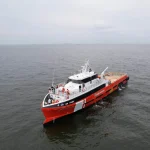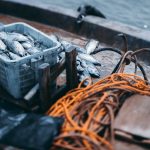The Impact of Ocean Warming on Marine Habitats and Species Distribution
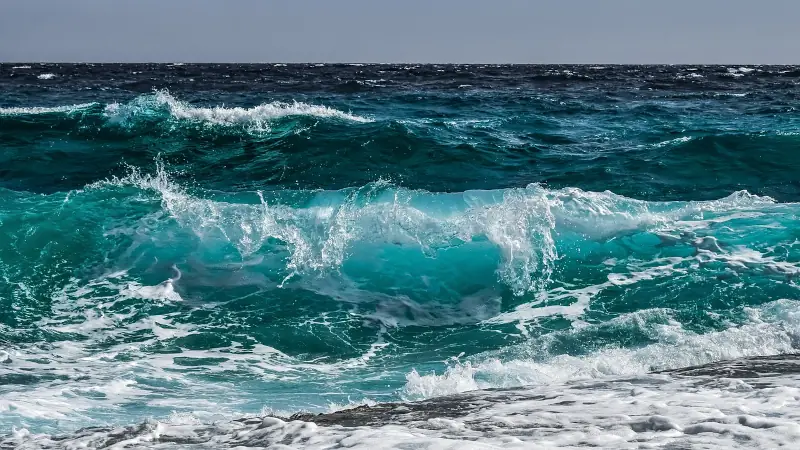
In the complex web of Earth’s interconnected systems, the oceans play a pivotal role. However, the rising of the ocean’s temperature has cast a daunting shadow over marine ecosystems. This article covers the multifaceted repercussions of ocean warming on marine habitats and the subsequent shifts in species distribution.
Understanding Ocean Warming
Causes and Mechanisms
Greenhouse gas emissions, primarily carbon dioxide, trap heat in the Earth’s atmosphere, causing a discernible rise in sea surface temperatures. The intricate interplay of natural processes and human activities exacerbates this warming trend.
Consequences of Ocean Warming
Shifts in Marine Temperature Patterns
As ocean temperatures rise, marine ecosystems face unprecedented challenges. Shifts in temperature patterns can lead to the displacement of species accustomed to specific thermal niches. Cold-water species may find themselves in increasingly warmer waters, while warm-water species face habitat reduction.
Impact on Ocean Currents and Circulation
Ocean warming disrupts the delicate balance of currents and circulation patterns. This disturbance not only affects marine life but also contributes to extreme weather events on land. The consequences ripple through ecosystems, posing a threat to the stability of various species.
Acidification: A Byproduct of Ocean Warming
The absorption of excess carbon dioxide by the oceans results in acidification—a parallel crisis linked to ocean warming. Acidic waters pose a threat to marine life, particularly organisms with calcium carbonate skeletons, such as corals and shellfish.
Ocean Warming’s Effect on Marine Habitats
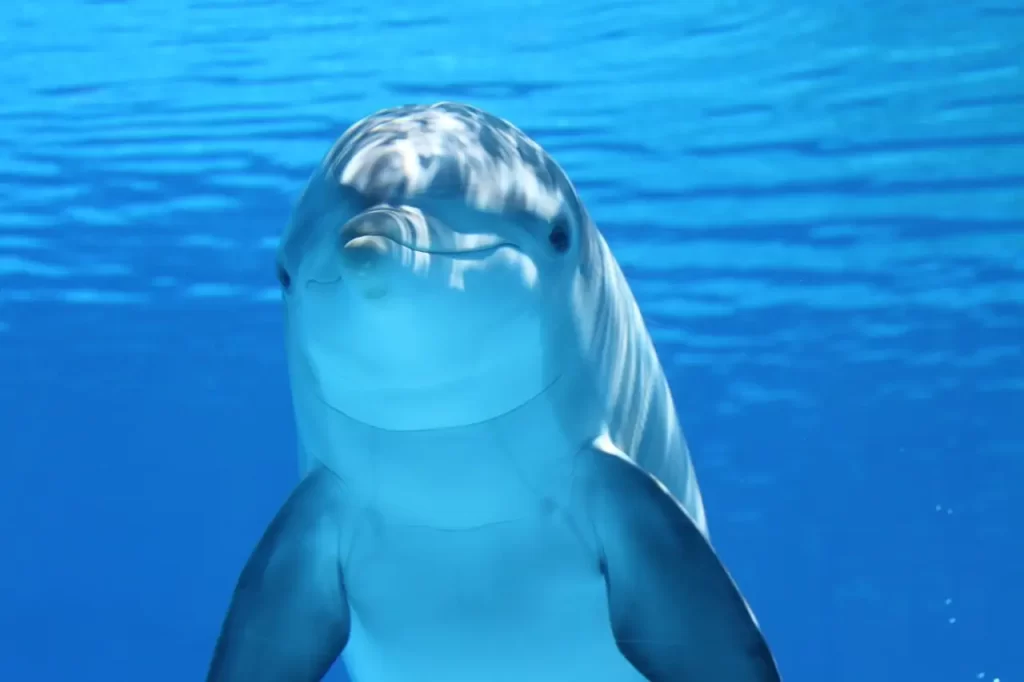
Coral Reefs in a Warming World
Among the most vulnerable ecosystems are coral reefs. Sensitive to temperature changes, corals experience bleaching—a phenomenon where symbiotic algae leave the coral, depriving it of essential nutrients. Prolonged exposure to elevated temperatures can lead to the irreversible decline of these vibrant underwater ecosystems.
Seagrass Meadows and Temperature Stress
Seagrass meadows, critical for various marine species, face increased stress due to rising temperatures. As temperatures surpass optimal ranges, seagrasses struggle to thrive, disrupting the delicate balance of marine ecosystems that rely on them for food and habitat.
Deep-Sea Ecosystems Facing Warming Challenges
Even the mysterious depths of the ocean are not immune to the impacts of warming. Deep-sea ecosystems, often considered stable environments, experience disturbances as rising temperatures alter the distribution of species. The repercussions of these changes are still unfolding, with potential consequences for biodiversity.
Mangrove Ecosystems and Rising Sea Levels
Mangrove forests, known for their crucial role in coastal protection and nurseries for various marine species, face a dual threat. Ocean warming, coupled with rising sea levels, puts these ecosystems at risk. Mangroves act as a buffer against storms and provide habitats for numerous species, but their resilience is challenged as temperatures rise.
Kelp Forests and Ecosystem Engineering
Kelp forests, predominantly found in colder waters, are undergoing substantial changes due to ocean warming. As warmer temperatures encroach upon their habitats, the distribution of kelp forests shifts. These ecosystems, vital for supporting diverse marine life, are also key players in carbon sequestration, making their conservation essential for global climate efforts.
Plankton and the Foundation of Marine Food Webs
The microscopic organisms collectively known as plankton form the foundation of marine food webs. Ocean warming can disrupt the distribution and abundance of plankton, impacting the entire marine ecosystem. Changes in plankton populations can cascade through the food web, affecting everything from small fish to large predators.
Seabird Colonies and Food Source Disruptions
Seabird colonies, dependent on specific fish and plankton species, face disruptions in their food sources due to ocean warming. Changes in the distribution and abundance of prey species can lead to reduced breeding success and population declines in seabirds, impacting the delicate balance of coastal ecosystems.
Connectivity of Marine Habitats
Ocean warming not only affects individual habitats but also alters the connectivity between them. Coral reefs, mangroves, and seagrass beds often function as interconnected ecosystems. Disruptions in temperature and habitat distribution can break these vital connections, leading to cascading effects on the biodiversity and resilience of entire coastal regions.
Oxygen Depletion in Deep-Ocean Environments
Warming temperatures influence the oxygen levels in deep-ocean environments. As the ocean warms, it becomes less capable of holding dissolved oxygen. This poses a threat to species adapted to these cold, oxygen-rich environments, such as deep-sea fish and other organisms dwelling in the abyssal depths.
Species Distribution and Ocean Warming
Migratory Patterns Altered by Warming
Ocean warming disrupts the migratory patterns of numerous marine species. Fish, whales, and other migratory animals may find their traditional routes transformed, leading to potential conflicts with human activities and impacting fisheries.
Impacts on Fisheries and Commercial Species
Commercial fisheries are not insulated from the effects of ocean warming. Changes in temperature and habitat distribution can result in shifts in the abundance and availability of commercially valuable species, posing economic challenges for fishing industries worldwide.
Threatened and Endangered Species in a Warming Ocean
The peril faced by threatened and endangered species is exacerbated by ocean warming. Polar bears, penguins, and sea turtles, already on the brink due to habitat loss and pollution, now confront the additional threat of changing ocean conditions. Conservation efforts must intensify to safeguard these vulnerable populations.
Adaptation Challenges for Cold-Water Species
Cold-water species, adapted to specific temperature ranges, find themselves facing unprecedented challenges. As warming progresses, these species may struggle to adapt or find suitable habitats. This can lead to declines in populations and disruptions to ecosystems that have evolved over millennia.
Invasive Species and Ecological Disruptions
Ocean warming can create opportunities for invasive species to expand their ranges. As warmer waters become more hospitable to certain non-native species, their introduction can lead to ecological imbalances, out-competing native species and altering the dynamics of marine communities.
Threats to Endemic Species
Isolated island ecosystems, home to numerous endemic species found nowhere else on Earth, face heightened threats due to ocean warming. The limited geographical range of these species leaves them particularly vulnerable. Conservation efforts must be tailored to address the unique challenges faced by these irreplaceable components of biodiversity.
Cascading Effects on Predatory Species
Ocean warming can lead to shifts in the distribution and abundance of predatory species. As the availability of prey species changes, predators may face challenges in finding suitable food sources. This can result in altered predator-prey dynamics, impacting the structure and functioning of marine ecosystems.
Genetic Adaptations and Evolutionary Pressures
In the face of rapid environmental changes, some marine species may undergo genetic adaptations as a survival strategy. The pressure to adapt to warmer conditions introduces an evolutionary dynamic, with potential consequences for the genetic diversity and resilience of marine populations over the long term.
Adapting to a Warmer Ocean
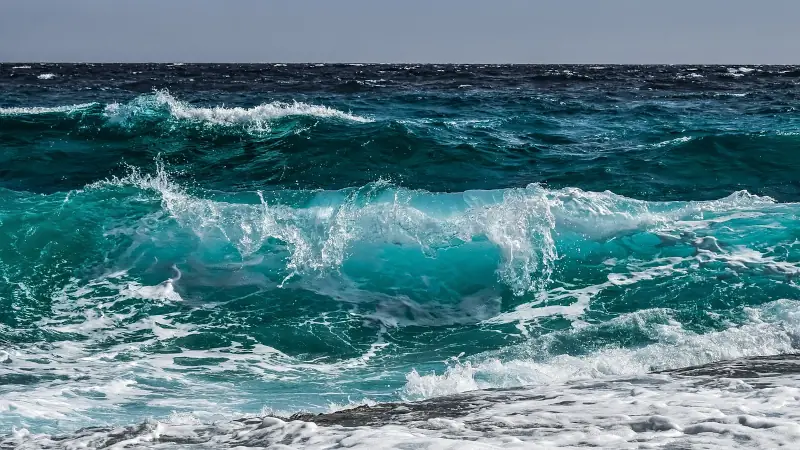
Marine Conservation Strategies
In the face of these challenges, marine conservation strategies are imperative. Establishing protected marine areas, implementing sustainable fishing practices, and mitigating pollution contribute to building resilient ecosystems capable of withstanding the impacts of ocean warming.
Sustainable Practices to Mitigate Ocean Warming
Addressing the root causes of ocean warming demands a commitment to sustainable practices. Reducing carbon emissions, transitioning to renewable energy sources, and fostering international collaboration are pivotal in steering towards a more sustainable and resilient future for our oceans.
International Collaborations for Climate Action
The magnitude of ocean warming transcends national boundaries, necessitating international collaboration. Agreements and initiatives aimed at curbing greenhouse gas emissions and promoting sustainable practices on a global scale are vital for mitigating the impacts of climate change on our oceans.
Technology and Monitoring Systems
In the quest to adapt to a warmer ocean, technology plays a major role. Advanced monitoring systems, such as satellite imagery and underwater sensors, enable scientists to track changes in ocean temperatures, currents, and biodiversity. This data is crucial for making informed decisions and implementing effective conservation strategies.
Community Engagement and Citizen Science
Engaging local communities in conservation efforts is paramount. Citizen science initiatives empower individuals to contribute valuable data and observations, fostering a sense of responsibility for marine ecosystems. Informed communities are better equipped to advocate for sustainable practices and participate in conservation initiatives.
Resilience-Based Conservation Approaches
Conservation strategies need to adopt a resilience-based approach, acknowledging that some changes in marine habitats and species distribution may be inevitable. By focusing on enhancing the resilience of ecosystems, we can facilitate their ability to adapt to new conditions and maintain ecological functions.
Blue Carbon and Climate Change Mitigation
Protecting and restoring coastal ecosystems, such as mangroves and seagrass meadows, contribute to blue carbon initiatives. These ecosystems sequester large amounts of carbon, playing a vital role in mitigating climate change. Supporting blue carbon projects becomes integral to addressing the broader impacts of ocean warming on a global scale.
Education and Awareness Campaigns
Raising public awareness about the impacts of ocean warming is crucial for garnering support for conservation efforts. Education campaigns can inspire individuals to make sustainable choices, reduce their carbon footprint, and actively contribute to the preservation of marine habitats and species.
Conclusion
As we analyse ocean warming’s impact on marine habitats and species distribution, it becomes evident that a comprehensive and adaptive approach is essential. From the intricate connectivity of ecosystems to the evolutionary pressures on species, the challenges are manifold. By embracing innovative conservation strategies, fostering global collaboration, and cultivating a profound understanding of the interconnectedness of our oceans, we can strive towards a future where marine life thrives amidst the challenges posed by a warming world.
Facts and Statistics
Rising Ocean Temperatures: The Intergovernmental Panel on Climate Change (IPCC) reports that global ocean temperatures have been rising, with the upper 700 meters of the ocean showing warming trends since the mid-20th century.
Widespread Impact on Marine Life: According to a study published in the journal “Nature,” marine species are shifting their distribution to cooler waters at an average rate of 72 kilometers per decade in response to ocean warming.
Coral Bleaching Events: The National Oceanic and Atmospheric Administration (NOAA) states that elevated sea temperatures contribute to coral bleaching events, where corals expel the symbiotic algae living in their tissues, leading to widespread coral mortality.
Threat to Coral Reefs:
The World Meteorological Organization (WMO) notes that coral reefs, often referred to as the “rainforests of the sea,” are particularly vulnerable to rising ocean temperatures, with prolonged periods of high temperatures causing extensive coral bleaching.
Impact on Fisheries: The Food and Agriculture Organization (FAO) estimates that marine fisheries provide livelihoods for over 200 million people, and changes in species distribution due to ocean warming can significantly impact fishery yields and the livelihoods of coastal communities.
Shifts in Migration Patterns: Research published in the journal “Nature Climate Change” suggests that many marine species, including fish and invertebrates, are altering their migration patterns and distribution in response to warming oceans.
Ocean Acidification: The increase in sea surface temperatures is often coupled with ocean acidification. The Ocean Foundation reports that ocean acidification, resulting from the absorption of excess carbon dioxide by seawater, can have detrimental effects on marine life, particularly organisms with calcium carbonate skeletons or shells.
Polar Regions Impact: The Arctic and Antarctic regions are experiencing accelerated warming. The National Snow and Ice Data Center (NSIDC) states that this warming has significant consequences for ice-dependent species, such as polar bears and seals, as well as the overall polar marine ecosystems.
Loss of Biodiversity: The International Union for Conservation of Nature (IUCN) highlights the threat of ocean warming to marine biodiversity, with potential cascading effects throughout ecosystems and food webs.
Economic Implications: The World Bank estimates that the economic impact of ocean warming on fisheries and coastal communities could be substantial, with potential losses in revenue and employment.
Resources
NOAA Climate.gov – Ocean Warming
NOAA Coral Reef Conservation Program
WWF – Ocean Warming
Ocean Warming
Ocean Acidification And Climate Change






